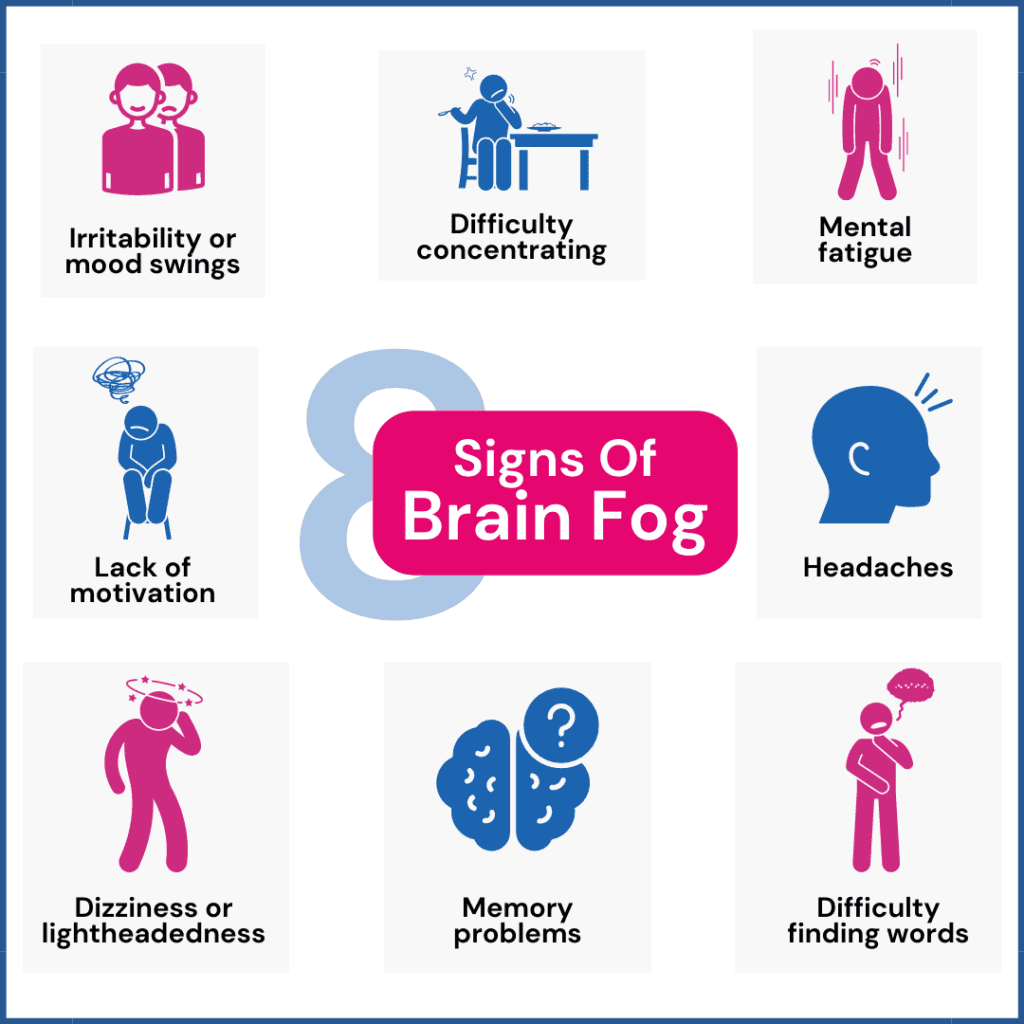Are you suffering from Brain fog ? Practical tips for managing it


Brain fog is a term used to describe a range of symptoms that affect a person’s ability to think clearly. It can make you feel mentally sluggish, forgetful, and unable to focus. While it’s not a medical condition itself, brain fog can be a symptom of an underlying issue, such as stress, lack of sleep, or a medical condition like depression or a thyroid disorder.
Managing brain fog often involves addressing the underlying cause. Here are some strategies that may help:
- Get Enough Sleep: Lack of sleep can contribute to brain fog. Aim for 7-9 hours of quality sleep each night.
- Reduce Stress: Chronic stress can impair cognitive function. Practice stress-reducing techniques like meditation, yoga, or deep breathing exercises.
- Exercise Regularly: Physical activity can improve blood flow to the brain and help reduce symptoms of brain fog.


- Eat a Balanced Diet: A diet rich in fruits, vegetables, whole grains, and healthy fats can support brain health.
- Stay Hydrated: Dehydration can lead to cognitive impairment. Drink plenty of water throughout the day.
- Limit Caffeine and Alcohol: Both can interfere with sleep and contribute to feelings of brain fog.
- Take Breaks: If you’re feeling overwhelmed or unfocused, take short breaks to rest your mind.
- Stay Organized: Use calendars, to-do lists, and other organizational tools to help manage tasks and reduce mental clutter.
- Consider Supplements: Some supplements, like omega-3 fatty acids or vitamin B12, may help improve cognitive function.
- Seek Professional Help: If your brain fog is persistent or severe, consider talking to a healthcare professional. They can help identify any underlying causes and recommend appropriate treatment.
By addressing the underlying causes and implementing these strategies, you can help manage brain fog and improve your overall cognitive function.





